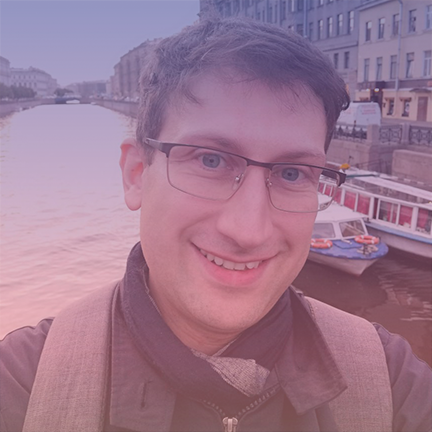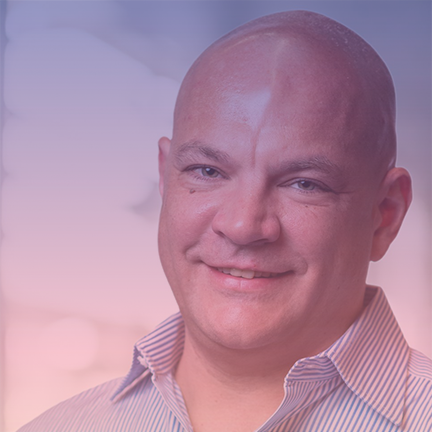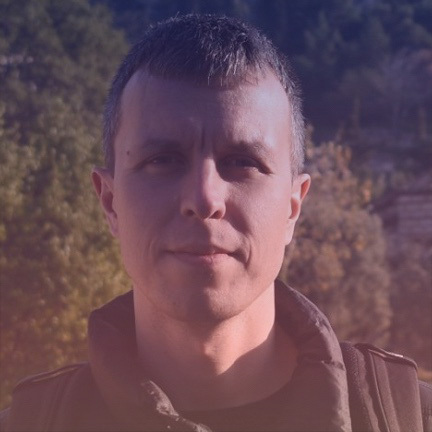


О школе












for senior students and graduates
IV INTERNATIONAL SUMMER SCHOOL
IN MATHEMATICAL FINANCE
IN MATHEMATICAL FINANCE













Advanced-level week-long workshop on modern financial mathematics by recognized international and Russian experts.

AUGUST 23RD – 30TH
DIEVO-GORODISCHE, YAROSLAVL
DIEVO-GORODISCHE, YAROSLAVL
*Mathematical finance — branch of mathematics devoted to the modeling of the financial market.







RELEVANT TOPICS
Mean Field Games and Evolutionary finance are two key themes of our school this year. Both of them are of great interest to mathematicians not only because of the rich theoretical framework they provide to work with, but also because of the huge amount of applications they have. For example, these themes can be applied to:

Portfolio optimization and construction of financial trading strategies;
Derivative pricing during financial crisis periods;
Models of green finance and electricity markets;
Systemic risk and other multi-agent financial models.
Derivative pricing during financial crisis periods;
Models of green finance and electricity markets;
Systemic risk and other multi-agent financial models.
At the same time, our school is distinguished by its broad perspective of view. Other realms of financial mathematics are also represented in our school program.




Supporting sessions
The school's mini-courses are complemented by informal review sessions to reinforce the material covered. The review sessions are led by scholarship recipients of the Foundation.
Preparatory seminars are planned before the start of the school. This format will provide an opportunity to familiarize oneself with or recall the key concepts important for mastering the school curriculum.
Anyone who has applied for the competitive selection process can participate in these seminars, regardless of the results.
Preparatory seminars are planned before the start of the school. This format will provide an opportunity to familiarize oneself with or recall the key concepts important for mastering the school curriculum.
Anyone who has applied for the competitive selection process can participate in these seminars, regardless of the results.

Scientific Directions
An important part of the school program is the "MathПитч" project.
This initiative provides all summer school participants with an opportunity to present their research results and discuss them in an informal atmosphere. The project focuses on themes related to mathematical finance and connected disciplines.
We believe it is important for summer school participants to become familiar with each other's scientific interests and works.
This initiative provides all summer school participants with an opportunity to present their research results and discuss them in an informal atmosphere. The project focuses on themes related to mathematical finance and connected disciplines.
We believe it is important for summer school participants to become familiar with each other's scientific interests and works.

Participation in school provides an opportunity to:
Understand optimal control methods better;
Learn more about mean field games applications to modeling systemic risk and green finance;
Gain insight into modern financial securities on interest rates.
Learn more about mean field games applications to modeling systemic risk and green finance;
Gain insight into modern financial securities on interest rates.



About The School






APPLICATION DEADLINE
till August 8th inclusive
August 23-30th, 2023
Participation is free
Organisers cover
accomodation, meals, as well as transfer within Russia to the school's location and back
accomodation, meals, as well as transfer within Russia to the school's location and back
4th year Bachelor's degree graduates
Students in their 5th to 6th year of Specialist programs
Students in their 1st to 2nd year of Master's programs
Doctoral students
Students in their 5th to 6th year of Specialist programs
Students in their 1st to 2nd year of Master's programs
Doctoral students
LOCATION:
Dievo-Gorodische, Yaroslavl
August 14-20th
PREPARATION TO THE SCHOOL (ONLINE):
WHO WE ARE LOOKING FOR
DATES:
SELECTION RESULTS
till August 12th inclusive



in the following fields:
Mathematics and related fields
Information Technology and related fields
Physics and related fields
Economic fields with advanced mathematics
Information Technology and related fields
Physics and related fields
Economic fields with advanced mathematics



school languages
Russian, English

July 31 - August 6
SELECTION TRAINING (ONLINE):
ENTRANCE TEST ISSUING:
July 26 - August 6
Follow the news in our Telegram https://t.me/vega_foundation
If you have any questions about the school, please contact us via email: info@vega-institute.org


COMPLETING TEST SUBMISSION:
till August 10th inclusive
Member of the Russian Academy of Sciences, Dr. of Phys. and Maths, Honored Professor at Lomonosov Moscow State University, Head of the Department of Probability Theory

Special guest
Albert Shiryaev
Peter Tankov
Optimal stopping mean-field games: the linear programming approach and application to the modeling of energy transition
PhD, ENSAE, Institute Polytechnique de Paris

Lecturers
lecture language: english
We consider the mean-field game where each agent determines the optimal time to exit the game by solving an optimal stopping problem. Using the framework of relaxed optimal stopping allows us to prove the existence of a relaxed Nash equilibrium and the uniqueness of the associated value of the representative agent under mild assumptions.
As an example of the application of the developed theory, we consider a model of the electricity market. In our model, there are two types of agents: the renewable producers and the conventional producers. The renewable producers choose the optimal moment to build new renewable plants, and the conventional producers choose the optimal moment to exit the market. The agents interact through the market price, determined by matching the aggregate supply of the two types of producers with an exogenous demand function.
An empirical example, inspired by the UK electricity market is presented. The example shows that while renewable subsidies may entail a cost to the consumer in terms of higher peakload prices. In order to avoid rising prices, the renewable subsidies must be combined with mechanisms ensuring that sufficient conventional capacity remains in place to meet the energy demand during peak periods.
As an example of the application of the developed theory, we consider a model of the electricity market. In our model, there are two types of agents: the renewable producers and the conventional producers. The renewable producers choose the optimal moment to build new renewable plants, and the conventional producers choose the optimal moment to exit the market. The agents interact through the market price, determined by matching the aggregate supply of the two types of producers with an exogenous demand function.
An empirical example, inspired by the UK electricity market is presented. The example shows that while renewable subsidies may entail a cost to the consumer in terms of higher peakload prices. In order to avoid rising prices, the renewable subsidies must be combined with mechanisms ensuring that sufficient conventional capacity remains in place to meet the energy demand during peak periods.
Yurii Averboukh
Mean field games
Doctor of Science, Krasovskii Institute of Mathematics and Mechanics UrB RAS, HSE

lecture language: russian
Mean field games originated as an idealization of non-cooperative differential games with a large number of similar players. In this scenario, the dynamics of each player are influenced by his/her control and the distribution of all other agents. The mean field games are widely used in economics and finance, and have become one of the most popular areas of control theory since their inception in 2006 by J.-M. Lasry, P.-L. Lions, M. Huang, R. Malhame, and P. Caines. From a formal point of view, a mean field game can be considered as a differential game of a continuum of players. However, thanks to the assumptions made, it is possible to split the problem into the study of an optimization problem for a representative player and the dynamics of the distribution of agents under the assumption that they use the same control.
Vladimir Piterbarg
Mathematics of Benchmark reform

PhD, Global Head Of Quantitative Analytics, NatWest Markets
lecture language: english
Libor benchmark reform of 2017-2023 fundamentally changed interest rate markets, and it posed a number of new and interesting quant problems. Specifically, the way the fall-back mechanism for Libor derivatives was designed saw the median (50% percentile) of a time series assume central importance in pricing of a vast universe of interest rate derivatives during the transition period. With no existing methods available for a general situation we found ourselves in, we had to develop new techniques for efficiently dealing with the median. In this mini-course we will provide an interesting (hopefully) demonstration of how rather deep probabilistic concepts are used by practicing industry quants to solve real-world problems.
Constantinos Kardaras
An investment with remarkable optimality properties
PhD, London School of Economics

lecture language: english
The so-called growth optimal portfolio has many further optimality properties, a few of which will be mentioned in these lectures, some of them in more detail. Particular focus will be placed on minimisation of expected market opportunity time to reach wealth levels and, more generally, distributions.
Mikhail Zhitlukhin
Evolutionary prediction models

PhD, Steklov Mathematical Institute of the Russian Academy of Sciences
lecture language: russian
In the lectures we will consider certain stochastic models of games with players making predictions of random events in the future. We will show how the information about the collective forecast can be used for estimation of conditional probabilities of events. The main results will rely on the notion of evolutionary optimal strategy.
Evgeny Pchelintsev
Asian options hedging with transaction costs
Cand. Sci. in Phys. and Maths, Tomsk State University

lecture language: russian
Options hedging is a rather efficient risk management method in financial markets. Analytic methods for Asian options hedging with transaction costs in the Black–Scholes market will be developed in the course. First, we will consider standard replication strategies. Then, using Leland's approach appropriate modifications for financial markets with proportional transaction costs will be proposed. Pricing problem will be solved as well.
Anna Obizhaeva
Modelling Financial Markets with Smooth Trading and Market Power

Professor of Finance, New Economic School
lecture language: russian
When large traders seek to profit from perishable private information, they face a fundamental tradeoff. On the one hand, they want to trade slowly, to reduce their own temporary price impact costs resulting from adverse selection. On the other hand, they want to trade quickly, before the permanent price impact of competitors trading on similar information makes profit opportunities go away.
We will discuss how to model this tradeoff using a model of continuous trading among oligopolistic traders. The equilibrium with smooth trading will provide important insights about dynamic properties of traders' inventories, prices, and liquidity in financial markets.
We will discuss how to model this tradeoff using a model of continuous trading among oligopolistic traders. The equilibrium with smooth trading will provide important insights about dynamic properties of traders' inventories, prices, and liquidity in financial markets.
Selection of participants is competitive and based on expert evaluation of the following portfolio positions:
How to join
- Motivation letter, resume, grade transcript (optional), recommendation letter (optional) — up to 30 points.
- Work at training seminars OR active work in Foundation's projects — up to 30 points.
- Work at training seminars OR active work in Foundation's projects — up to 30 points.
- Entrance test — up to 40 points
- Average score for completed courses of the Foundation — up to 40 points.
- Positive feedback from the Head of scientific group of the Foundation — 40 points.
- Average score for completed courses of the Foundation — up to 40 points.
- Positive feedback from the Head of scientific group of the Foundation — 40 points.
Recommended length – no more than one A4 page.
Suggested contents:
- Justified motivation for participating in the school
- Description of current knowledge, skills and experience that will allow you to master the material offered at the school
- Description of current research interests
- Description of how the knowledge and skills provided by the school will be applied in academic and/or professional field
Suggested contents:
- Justified motivation for participating in the school
- Description of current knowledge, skills and experience that will allow you to master the material offered at the school
- Description of current research interests
- Description of how the knowledge and skills provided by the school will be applied in academic and/or professional field
Recommended length – no more than two A4 pages.
Suggested contents:
- Higher education obtained and/or being obtained, relevant for the school (university, level and dates)
- Average grade across subjects, relevant for the school
Only considered when provided along with the grade transcript for all semesters up until the application date.
- Description of academic or other experience in the current field of studies (including term papers with topic names)
- Description of your technical skills
- Information on publications (if any)
- Information on other achievements (if any)
Suggested contents:
- Higher education obtained and/or being obtained, relevant for the school (university, level and dates)
- Average grade across subjects, relevant for the school
Only considered when provided along with the grade transcript for all semesters up until the application date.
- Description of academic or other experience in the current field of studies (including term papers with topic names)
- Description of your technical skills
- Information on publications (if any)
- Information on other achievements (if any)
If you want to receive points for your average grade in relevant subjects (see above in the Resume description), you must provide a transcript with grades for all semesters of your current education up until the application date.
Providing a recommendation letter from a research supervisor / programme academic supervisor / faculty management gives the participant an advantage during selection with other factors being equal.
IMPORTANT:
Participating in each of the academic and extracurricular events at the Summer School is compulsory.
Participant may be individually exempt from an event based on a valid reason presented to the organisers.
The Foundation reserves the right to expel participants for violating the regulations.
Participating in each of the academic and extracurricular events at the Summer School is compulsory.
Participant may be individually exempt from an event based on a valid reason presented to the organisers.
The Foundation reserves the right to expel participants for violating the regulations.


15, 17 августа
19-30
Третий блок (Михаил Житлухин):
Лекция: когерентные меры риска и функции полезности
Третий блок (Михаил Житлухин):
Лекция: когерентные меры риска и функции полезности
19-30
Четвертый блок (Vardan Voskanyan):
Лекция: введение в оптимальный транспорт
Четвертый блок (Vardan Voskanyan):
Лекция: введение в оптимальный транспорт
18, 20 августа
22 августа
19-30
Пятый блок (Виктор Антипов):
Лекция: введение в машинное обучение с использованием Python.
Пятый блок (Виктор Антипов):
Лекция: введение в машинное обучение с использованием Python.
4,6,8,11 августа
19-30
Первый блок (Евгений Колосов, Артур Сидоренко): Тема: Вводные лекции по финансовой математике
Первый блок (Евгений Колосов, Артур Сидоренко): Тема: Вводные лекции по финансовой математике
12-13 августа
19-30
Второй блок (Yvain Bruned): Лекция: Renormalisation from non-geometric to geometric rough paths
Второй блок (Yvain Bruned): Лекция: Renormalisation from non-geometric to geometric rough paths
Timeline






July 14 - application start
July 26- August 6 - entrance test issuing
July 31 - August 6 - selection training
August 2 - online-meeting, learn more via link
August 8 - application deadline
August 10 - completing test submission
August 12 - selection results
August 14-20 - online preparation to the school
(participation is recommended for a better understanding of the school materials)
July 26- August 6 - entrance test issuing
July 31 - August 6 - selection training
August 2 - online-meeting, learn more via link
August 8 - application deadline
August 10 - completing test submission
August 12 - selection results
August 14-20 - online preparation to the school
(participation is recommended for a better understanding of the school materials)
Вся информация о месте проведения и темах семинаров публикуется в Телеграмм канале по подготовке к школе


Organisational Committee
Yuri Kabanov
Committee chairman, Dr. of Phys. and Maths, Professor at Moscow School of Economics, Faculty of Mechanics and Mathematics, Moscow State University
Kirill Klimov
Cand. Sci. in Phys. and Maths, CEO, Member of the Board of Directors at the Vega Institute Foundation
Deputy Chief Executive Officer at the Vega Institute Foundation
Project Manager of Educational Initiatives at the Vega Institute Foundation
Dmitry Sotnikov
Scientific coordinator at the Vega Institute Foundation






Marianna Tsareva

Valeria Stefanenko
Head of Development at the Vega Institute Foundation
Valeria Volobueva




